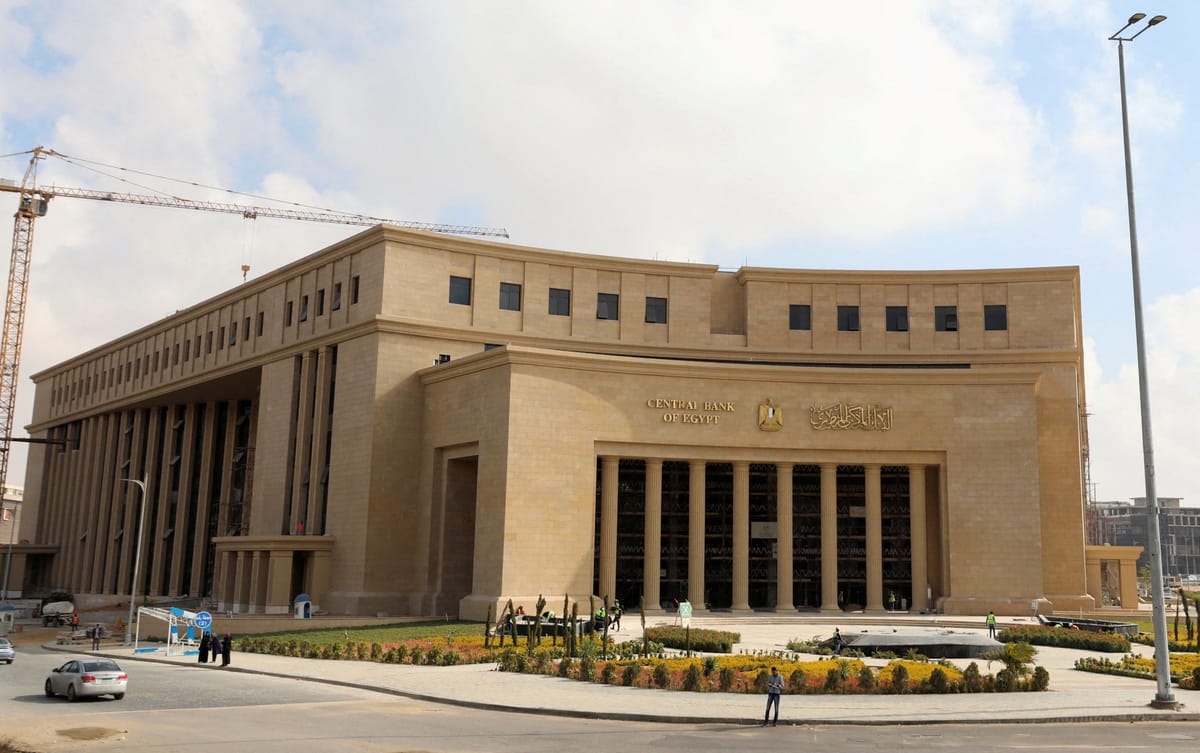Egypt and the IMF expand rescue program to US$8 billion for economic rejuvenation
An expansion of Egypt's agreement with the IMF was announced on Wednesday.

A few minutes every morning is all you need.
Stay up to date on the world's Headlines and Human Stories. It's fun, it's factual, it's fluff-free.
The backstory: Egypt has been navigating some financial challenges lately, with a range of issues piling up over the years. One is the shortage of foreign currency, which you need for global trade. This has been made worse by trouble at the Suez Canal because of attacks by Yemen's Houthi militants. This canal is a lifeline for global trade, so any hiccups there hit Egypt hard. On top of that, Egypt racked up debts to foreign oil companies after protests in 2011 led to President Hosni Mubarak stepping down. While his departure marked a turning point, it also brought instability that Egypt has grappled with ever since.
Since the beginning of 2022, the Egyptian pound has been on a downward spiral against the US dollar, making life tougher for many residents, with nearly a third now living below the poverty line. To tackle these financial woes, Egypt has been seeking help from sources like the International Monetary Fund (IMF), China, India and the Gulf States.
More recently: Saudi Arabia put US$5 billion into Egypt's central bank in 2022. Abu Dhabi's ADQ also invested in Egyptian ventures, including buying part of Egypt's largest tobacco company. Just last month, Egypt struck a major deal with ADQ, aiming to bring in US$35 billion in investments by late April.
The development: An expansion of Egypt's agreement with the IMF was announced on Wednesday, adding another US$5 billion to the rescue program, bringing it up to US$8 billion. This expansion builds upon a US$3 billion program launched back in December 2022. One key move in this plan is to allow the Egyptian pound to trade more freely, loosening the government's control over its value. The central bank has also hiked up interest rates by a significant 600 basis points.
And to keep things in check, Egypt has set a limit on total public investments for the fiscal year 2024-2025 at 1 trillion pounds (around US$20 billion). The IMF has given Egypt's plan a thumbs up, saying it's good for managing debt, keeping prices stable and making changes to help the economy grow and recover. Meanwhile, Egypt is also eyeing another loan from the IMF, focusing on financing for climate change efforts.
Key comments:
"We are on the right track for the country to be economically stable and strong," said Central Bank of Egypt Governor Hassan Abdalla.
"Egypt's international and regional partners will play a critical role in facilitating the implementation of the authorities' policies and reforms," said the IMF in a statement.
"This basically means that Egypt is in a better position to meet all its short-term debt obligations and in fact also access new debt including eurobonds," said Bilal Bassiouni, head of Middle East and North Africa forecasting for consulting firm Pangea-Risk. "We believe Egypt will be one of the new clients for eurobonds in 2024."
Editor's correction: This piece previously inaccurately stated that the expansion was announced on Monday. It was, in fact, announced on Wednesday.




Comments ()